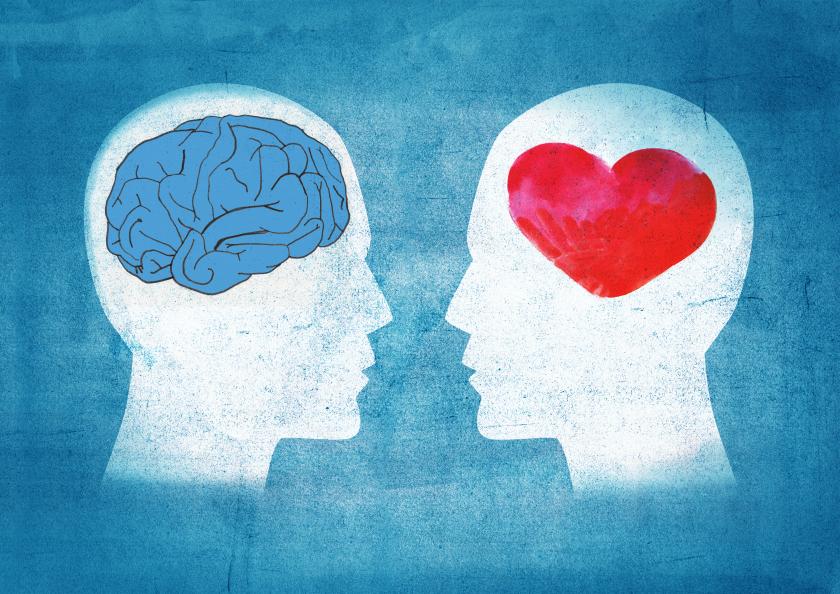2017
Authors: Kathrynn Mabalot, MS and Katrina Colby, MS
 The ability to evoke emotions or emotional states we as humans’ experience are the result of multiple brain structures working together in response to stimuli. There is a vast amount of research on the construct of emotion and how it relates to one’s memory or ability to recall a specific stimulus. The research consensus remains that memories are often stronger or more accurate when the participant is emotionally aroused or provoked. Further, research on the connection of emotions and memory is imperative within the field of forensics. For instance, eyewitness testimony may be influenced by heightened emotional states; thus, affecting the credibility of an individual’s testimony. In considering an individual’s eyewitness account, it may be necessary for the clinician or attorney to evaluate the person’s emotional state, prior to the apex or time of the alleged offense. Moreover, clinicians with specialized psychological training or expertise have the knowledge to administer psychological assessments and to ultimately inform treatment.
The ability to evoke emotions or emotional states we as humans’ experience are the result of multiple brain structures working together in response to stimuli. There is a vast amount of research on the construct of emotion and how it relates to one’s memory or ability to recall a specific stimulus. The research consensus remains that memories are often stronger or more accurate when the participant is emotionally aroused or provoked. Further, research on the connection of emotions and memory is imperative within the field of forensics. For instance, eyewitness testimony may be influenced by heightened emotional states; thus, affecting the credibility of an individual’s testimony. In considering an individual’s eyewitness account, it may be necessary for the clinician or attorney to evaluate the person’s emotional state, prior to the apex or time of the alleged offense. Moreover, clinicians with specialized psychological training or expertise have the knowledge to administer psychological assessments and to ultimately inform treatment.
A study by Zlomuzica et al. (2016) examined emotional states on episodic memory formation in a virtual reality setting. Participants viewed movie clips that induced either: pleasant, neutral, or anxious emotional states and then were given questionnaires to assess possible influence of depression, anxiety, and stress traits on memory performance. The memory of each participant was also tested using virtual reality scenarios by having participants memorize location of events in a room through the virtual reality simulation.
Overall, the study found that memory was negatively impacted in individuals who were experiencing anxious induced emotional states (Zlomuzica et al., 2016). Further, the study found that high levels of negative arousal were associated with poor memory on temporal and spatial contexts. In addition, high levels of happiness were associated with better memory for spatial contexts. This study exemplifies how emotional states affect the quality of an individual’s memory. It also suggests that negative emotions negatively impact a person’s memory, whereas, more positive emotions, such as happiness, increases memory performance.
Research has also examined memory recall or recollection skills in participants with Posttraumatic Stress Disorder (PTSD). In Lanius et al. (2003) participants with PTSD that had been exposed to trauma showed significantly higher levels of activation in the thalamus and the anterior cingulate gyrus in three emotional states (sad, anxious, and traumatic) than participants with PTSD, alone (no exposure to trauma). These activation levels were observed through fMRI scanning techniques and were a catalyst of sorts; as previous PTSD neuroimaging studies did not compare recall of the traumatic memory to other emotional states (Bremner et al 1999a, 1999b; Liberzon et al 1999; Shin et al 1997, 1999). Lanius et al. (2003) results suggest that previously reported PTSD neuroimaging findings were not necessarily specific to conditions involving the recollection of traumatic events in PTSD, but rather the recollection of negative events in an individual with a high level of emotional dysregulation. This is important, given the generalized affect dysregulation often observed clinically in PTSD patients (van der Kolk et al, 1996). This further suggests that traumatic events evoke stronger emotions as a result of a strengthened neurological pathway between the amygdala and the hippocampus in the brain.
Such insights into the nature of memories have led researchers to believe that emotional cues are responsible for triggering the recall of a traumatic or positive event. This suggests that a negative and/or traumatic event can be re-experienced by an individual as the recollection of such events reinforces the memory loop (neurological pathway) and strengthens the connection between structures responsible for emotion (amygdala) and memory (hippocampus).
In conclusion, our memories are engulfed by strong emotions or a heightened state of arousal. Research has shown that traumatic events activate the neurological connection between the amygdala, hippocampus, and central nervous system; ensuing the recall of events. Future directions in this field may include research that attempts to identify and understand memory variations in individuals with a diverse range of psychological disorders. For example, research on memory bias could inform experts of the credibility of an eyewitness testimony in high and low profile cases, alike. There is a need for additional research within a variety of populations that are subject to high risk behaviors, as advancements in research could further inform clinicians in the assessment or treatment of individuals within the criminal justice system.
References
- Lanius, R. A., Williamson, P. C., Hopper, J., Densmore, M., Boksman, K., Gupta, M. A., … & Menon, R. S. (2003). Recall of emotional states in posttraumatic stress disorder: an fMRI investigation. Biological psychiatry, 53(3), 204-210.
- Zlomuzica, A., Preusser, F., Totzeck, C., Dere, E., & Margraf, J. (2016). The impact of different emotional states on the memory for what, where and when features of specific events. Behavioural brain research, 298, 181-187.


